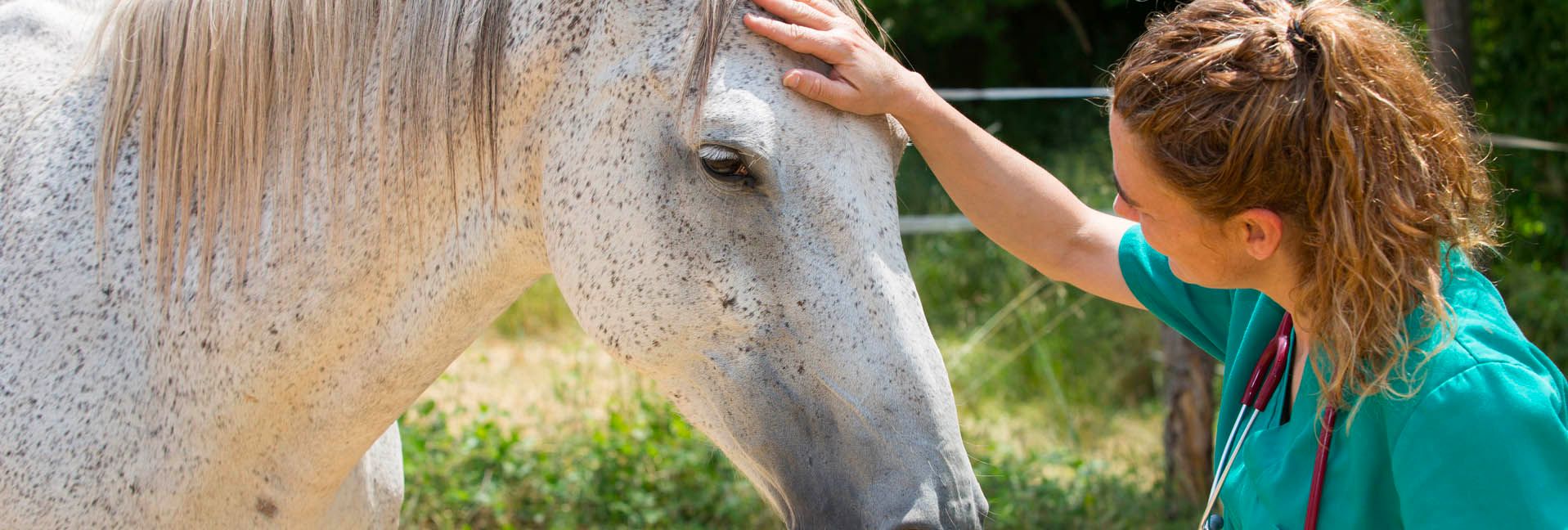Sick Enough or Not? When to stop Googling and call your veterinarian


Horse owners look at our animals’ medical issues a little differently than owners of cats or dogs. It’s neither practical nor affordable to load a horse up and haul into the clinic for every nick or cut, so traditionally, many horse owners have become adept at treating abscesses and minor bumps and bruises themselves.
The advantage of the internet and social media age has got to be that if you forget the best way to pack a foot, it’s not hard to find a how-to guide, even you are sitting on the tack trunk in the barn.
The downside of social media is that it becomes a little too tempting to consult “Dr. Google” instead of the veterinarian, whom you suspect could charge you for a farm call. While it may seem like a quick web search of your horse’s symptoms won’t do any harm, relying too heavily on the internet, or (worse) Facebook posts to diagnose and treat a horse can waste valuable time while a condition rages on.
The most challenging thing is knowing when to call the vet, and when to try to handle a problem yourself.
The following symptoms and situations are arranged from red flags (meaning an emergency so call now), orange flags in which something uncertain but potentially important is occurring, and yellow flags, where sometimes ongoing problems hold the potential to bloom into a troublesome health issue.
Red flags
There are some situations which merit an emergency call to the veterinarian, including:
• A horse is down and unable to get up, including a horse showing signs of shock, seizure, or catastrophic injury
• Neurological signs, such as repeated tripping, unsteadiness, head-pressing, lack of balance or coordination
• A puncture wound or other wound with profuse bleeding
• A fracture or other injury in which bone is exposed
• Horse’s gums are dark red or black
• Symptoms of possible laminitis such as heat and pulsing in foot and classic “rocked back” stance as the horse takes weight off his front feet
• Any sort of object impaled in any part of the horse
• Severe and sudden lameness in which a horse is non-weight bearing on one limb
• Watery diarrhea
• Multiple horses on the property coming down with the same symptoms at once
These are signs the horse is in major medical distress and should be seen by a professional immediately.
Orange flags
There are other circumstances in which you should call a veterinarian right away and expect they may ask you to take vital signs or administer emergency medication until they arrive.
• Rectal temperature above 101.5 (know what’s normal for your horse)
• Symptoms of colic, including rolling, kicking at stomach, biting at sides, etc.
• Signs of stress or pain without obvious cause (like noise or changes in the barn) such as sweating, increased heart rate, increased respiratory rate
• Any obvious damage or cloudiness in the eyes
• Significant heat, swelling, or pulses in the feet or legs
• Head-bobbing lameness, particularly at the walk
Yellow flags
The kinds of scenarios which I see people most often crowdsource medical advice are symptoms which have persisted for several days or weeks. Those stubborn symptoms can sometimes be signs of a chronic, underlying problem.
• Lack of appetite, with or without fever; a horse who doesn’t clean up his food could be in pain or experiencing problems with his teeth
• Lameness which hasn’t resolved within a few days or has worsened
• Recurrent runny eyes and crustiness around corners of the eye
• Gradually losing or gaining weight without significant change in exercise
• Significant changes in hoof growth patterns without obvious cause
• A training issue, such as a consistent unwillingness to pick up one lead or to turn in one direction, which could indicate a stiffness or pain on one leg or side of the body
When to call for advice
Most veterinarians are happy to field a couple of questions over the phone to help you determine whether they need to pay you a visit. If you live in a remote area, it’s also in the vet’s best interest to decide whether it’s worth their time to come out to you. Many of them would also rather you ask their opinion than do something to make their work more difficult later.
There’s nothing wrong with seeking advice and support once a horse has been diagnosed and is undergoing treatment, but beware of getting too many cooks in the kitchen. Your veterinarian will have a plan for the horse’s medical care, and mixing suggested treatments, supplements, or herbal remedies in with the program could muddle the effectiveness of all solutions in play. Many veterinarians will be willing to communicate their reasoning for treating or diagnosing a horse in a certain way and are happy to explain that to you if asked.
Tags:Horse Sense

Acreage Life is part of the Catalyst Communications Network publication family.
















